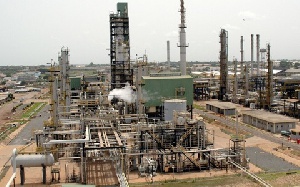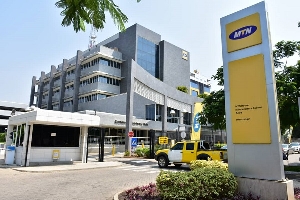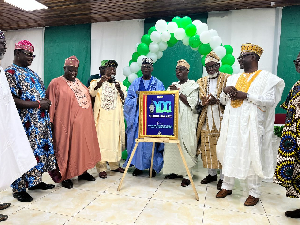Today can report that the Isaac Owusu-led Tema Oil Refinery (TOR) is seriously facing financial challenges as the company had in the past few months been struggling to pay salaries and allowances of its workers.
The situation, Today gathered, if not addressed with a sense of urgency, will soon see workers of the nation’s only refinery lay down their tools in protest against bad management as a result of imposition of bad leaders and sheer arrogance.
Speaking in an interview with Today at the weekend in Tema on condition of anonymity, a senior worker at TOR who sounded angry, lamented the poor working conditions at the place, blaming it on successive governments, including the current Akufo-Addo administration.
What is more worrying, our source at TOR said, was the failure on the part of the government to pay the salaries and allowances of workers on time.
“Can you [referring to this reporter] imagine we [the staff of TOR] have to stay for more than a week at the end of every month before our salaries are paid,” the source intoned.
And for allowances though the source said “every worker at TOR is supposed to have it by the middle of every month, it now comes at the end of every month, and sometimes it does not come at all.”
For instance, our checks at TOR showed that last month’s (May’s) salary was paid with a banker’s draft, as there was no penny in the coffers of the company to pay the workers.
“The situation is no more funny; it has now reached a crescendo, and the earlier the government intervenes, the better for the country,” the source advised.
Our source was also not happy with the board members of TOR led by its Chairman, Tongraan Kugbilsong Nanlebegtang, who is the Paramount Chief of Talensi Traditional Area in the Upper East Region.
The source accused the board chairman of usurping the powers of the Chief Executive Officer, Ambassador Isaac Osei, and dictating how TOR should be run.
According to our source, “training programmes meant for TOR staff were now being attended by members of the board, and this is not proper.”
Today’s further investigations revealed that somewhere April this year, a training programme on ‘Environment and Safety,” held in Switzerland which was meant for workers at TOR was instead attended by some board members.
“What do they [the board members of TOR] need environment and safety training for, if not sheer wickedness and greed?” the source quizzed.
Other workers who also took turns to voice out their grievances told Today how disappointed they had become, considering the kind of promises the then opposition New Patriotic Party (NPP), now the ruling party, made to them during the 2016 electioneering campaign.
“The NPP promised to make TOR better which will positively affect our working conditions, but the truth of the matter is that TOR is gradually ‘dying’ and there is no hope for us,” the workers lamented.
Although they did not call for a change in management, they appealed to President Nana Addo Dankwa Akufo-Addo to, as a matter of urgency, stop the board chairman of TOR from unnecessary interferences, which, they said, were not helping the success of the company.
It will be recalled that the Minister of Energy, Boakye Agyarko, recently had a serious disagreement with TOR CEO over the conversion of TOR into a tank farm.
During a meeting at the Offshore Technology Conference (OTC) held in Houston, Texas, in the United States of America(USA), Mr Agyarko announced that plans were underway to convert the distressed TOR into a tank farm.
The minister added that they would establish a refinery hub in Takoradi in the Western Region to serve Ghana and the sub-region.
Currently, TOR’s production capacity hovers around 20,000 metric tons, which is grossly inadequate to cater for Ghana’s current requirement of around 160,000 metric tons a day.
General News of Monday, 18 June 2018
Source: todaygh.com













